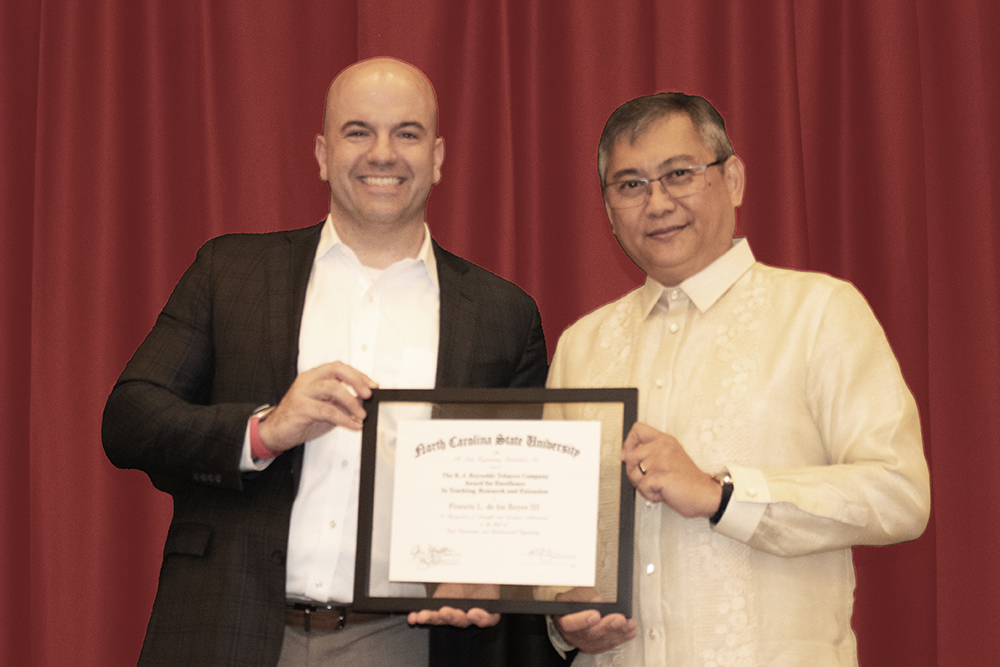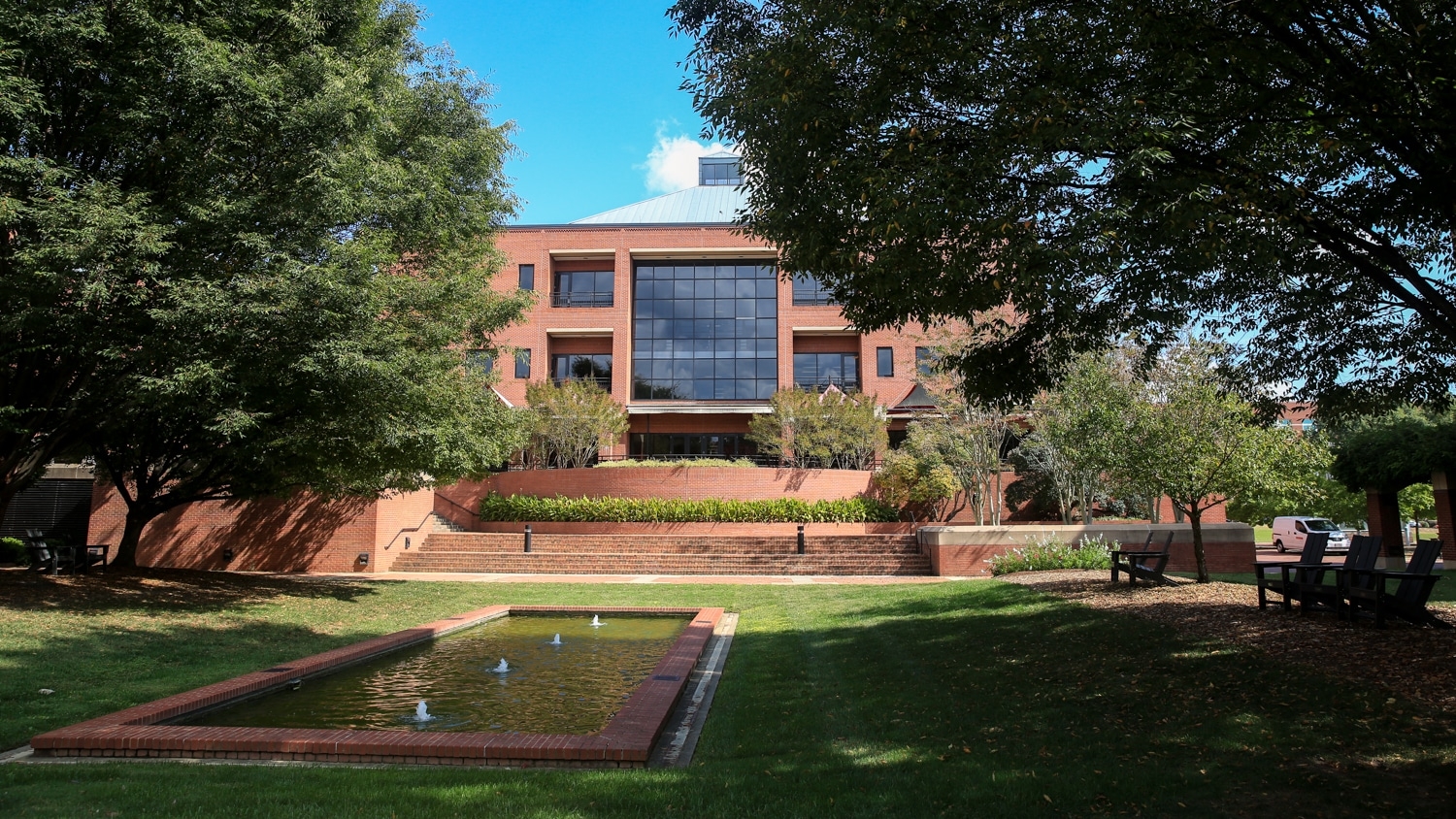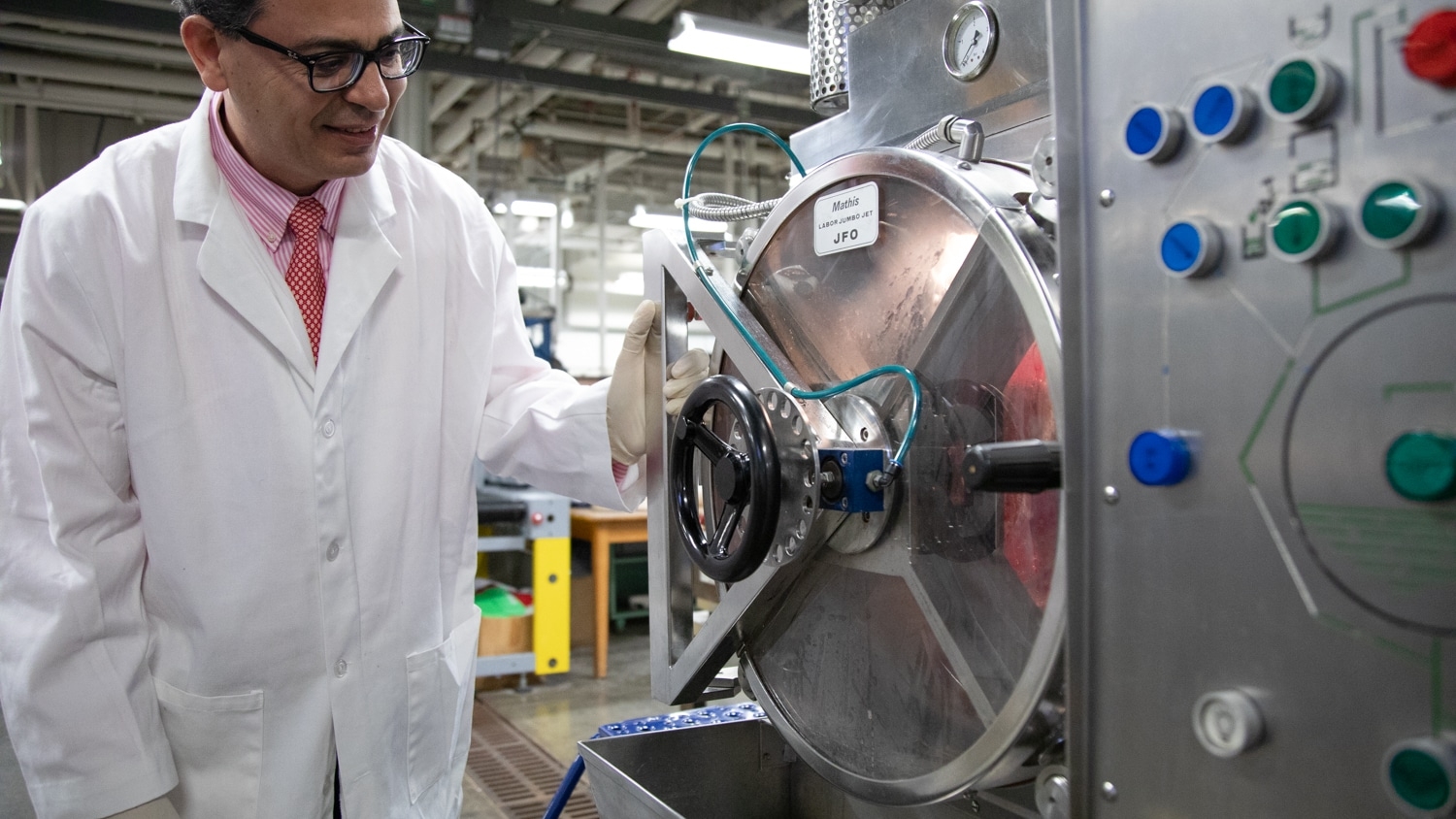The College of Engineering’s Office for Faculty Development and Success (OFDS) officially kicked off its efforts to improve academia’s policies and attitudes around caregiving with a forum on Nov. 8.
A Call to Action: Forum for STEM Leaders to Reform the Norms for Academic Caregivers brought together STEM leadership from NC State University; the National Academies of Sciences, Engineering, and Medicine (NASEM); and the Women in Engineering ProActive Network (WEPAN). Details on the speakers are available at go.ncsu.edu/carecoalition.
“This is just the first step to effect real change in caregiving policies in academia,” said Joel Ducoste, associate dean of OFDS. “Over the last few months, we’ve heard many stories about the challenges of caregiving faced by faculty, staff, and students.”
The catalyst for the event was the National Academies’ 2024 report, Supporting Family Caregivers in STEMM: A Call to Action, which found that in 2022, 40% of families in the United States lived with children and in 2020, nearly 20% of Americans served as caregivers for adults. The report also noted that the work of caregiving continues to fall disproportionately on women. When the OFDS team met with NASEM and WEPAN to discuss these findings, the team realized bringing together leaders and future leaders would help highlight the urgency of the issue.
“It was a call to action,” explained Megan Morin, associate director of OFDS. “A chance to lay the groundwork for leaders who can create micro-initiatives and practices that foster caregiving communities from departments to courses. It’s time to turn the conversation into change.”

Speakers and attendees at the event reiterated that nearly everyone in the United States is, has, or will be caring for someone — an aging parent, sick relative or a child, for example. But workplace policies and attitudes about caregiving responsibilities often make it challenging for academic faculty and staff members to take the time they need when caring for someone.
Every speaker had a personal story related to caregiving and the challenges they faced navigating work responsibilities and/or leave policies. Faculty members shared their experiences with pregnancy, including being questioned about how they would deal with the negative impact their leave would have on students and being asked to share personal information with a tenure committee. Others talked about taking care of aging parents or sick family members and the struggle to have flexibility to take them to appointments or provide the care they need.
One of the biggest barriers to creating an environment accommodating to caregiving is the norm of the “ideal worker” — a person who seems to have no obligations outside of work and can devote all of their attention to the workplace. Having these norms in place produces a stigma against using flexibility or missing after-hours work events.
To reduce these stigmas and make an impact on NC State, OFDS plans to implement a professional development program called the CARE Coalition to support STEM faculty and staff leaders in developing initiatives that support caregivers within their specific academic unit or environment.
CARE stands for Cultivating Action, Resilience, and Empowerment for Academic Caregivers, and the coalition will convene in the spring of 2025 to prepare to implement initiatives in the fall of 2025.
Key quotes from the forum
“Caregiving encompasses many different relationships, tasks and levels of intensity and duration. Caregivers provide care to children, adults, immediate family and extended kin. Caregivers support physical, mental, emotional, financial, transportation and organizational needs, which vary by individual and over time.”
Katie Wullert, program officer at NASEM
“Oftentimes as care, give caregivers, it’s almost like a silent tread. … We’re never supposed to express that we’re bummed out and we’re tired and we’re worn out, but that we still want to give to the people who we love and care for. We still want to return something to the world for the people who love and care for us. And it is rewarding and it is exhausting. It is hard. So oftentimes the expectation is that we keep our heads down and we keep going. And I do believe that policy is at a loss for not hearing our voices and our lived experiences.”
Stephani Page, managing director of programs, strategic initiatives, and community engagement at WEPAN
- Categories:



